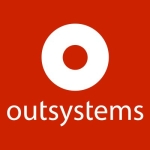What is our primary use case?
We use this solution for managing IT assets and business operations.
We are also using it to help make better business decisions.
How has it helped my organization?
Using ServiceNow has forced conversations around the whole IT domain, on how we can manage the IT assets through their life cycles. This starts with identifying the need and introducing it, developing it, and deploying it, to then eventually making decisions to remove the asset from the operation.
I can use it to see the whole life cycle.
As a company, it's about how you get your data in there and manage it.
What is most valuable?
I like all of the operations and features that I have seen.
I like that it's running on a unified platform and that there is no data integration.
I can get a real-time view of how our assets are performing.
I also like that with the operations running on a unified platform, I can then get a better picture of ITHealth through the application platform management tool.
I really like what they've done with their common service data model because now I can make a connection between the business process and technology. I can start showing the role some of the technologies are playing and talk about the health of the technology and even connecting it up to the business strategies. You can do that with the APM component.
I like having one platform to get that view.
What needs improvement?
The marketing needs improvement. This platform can really do a lot and I don't think they do it justice for what it can do.
I have to go out there and market things. Whereas I think if their teams were a little more in tune with what they could actually deliver, they would do a better job selling it.
I still haven't seen a holistic picture of the whole platform and what they can really do. I don't know if that's intentional or if they're not selling it.
The visuals are the one area where there is opportunity for improvement.
The reporting can be difficult, but they are making it a little easier to create reports or introduce a wizard to help you walk through them.
You have to know the entity-relationship diagram to get the right data and make the right connections.
The visual representation of the data is an area where they fall short of, but they do have a partner who is native to their product. It does a much better job visualizing the data. I don't know if that is there, the way they're closing the gap.
I would like to see, from a business process automation perspective, where an engineer or architect could implement the automation. You don't have to write the spec and hand it off to a ServiceNow developer.
For some of the things that are happening with the other BPM tools, I'd like to see ServiceNow be a little more user-friendly. Another thing I'd like to see is that they have a representation and their service taxonomy of a more modern application for events business logic, as well as APIs. As it is now, it's still in the application and infrastructure perspective, but that's not totally a modern construction of an application.
For how long have I used the solution?
I have been using ServiceNow for 12 years.
We are running the current version.
What do I think about the stability of the solution?
From a SaaS perspective, it's very stable. I think in the 12 years that I've been running it, I have seen maybe one or two outages. For the most part, it's pretty stable.
What do I think about the scalability of the solution?
I haven't really experienced any performance problems. I am assuming that they are monitoring and extending it when they need to.
I don't know how many users they have at my current company. In my last company, we had more than 1,000 users. They were primarily IT except for the work request part of it that came in from the entire enterprise.
It is being used extensively. There are definitely plans it increase the usage. I am working on the plans to extend it. It was just introduced in March, more for the kind of IT service side of it. Problems, incidents, change, and work requests for example.
Now I am looking to bring in governance, risk, and compliance.
Also, having conversations with other areas like business continuity, disaster recovery, and security about how they could leverage the same platform for some of their operations.
I think whoever purchased it had this in their vision, they're just not communicating who's vision right now. I have been having those conversations to get people to understand what we will be able to do in the future so that they buy into making the move and investing in learning how to use ServiceNow.
How are customer service and technical support?
I wasn't on the support team. I am on the architecture team, but as far as technical insights go, and to help make decisions, they have been very good at sharing knowledge.
I have a couple of connections right now who, as I'm trying to push things out a little bit more, I'm pinging. I am getting help with enterprise ERDs and different things, and they're very responsive to them.
How was the initial setup?
I was not involved in the setup of this solution. It was already in place when I started with the company.
What other advice do I have?
To others who are interested in implementing ServiceNow, I would say, consider it for running your IT operations, but implement it capability by capability. This will allow you to see the big picture of what you're going to get at the end of it. You can't do a big bang approach on this. Rather, you have to be very deliberate in how you implement it.
They have thought through it, and not just the whole domain in the platform but now they have connected it to the business side, the business needs and the processes, the work that people do down to the technology. I think that was missing a few years ago, probably more than a few years ago. Because I think they met with them in 2016 around it. But they have got that now, and it is really powerful.
I've been working through the taxonomy with different parts of the organization and the fact that they can start making some of these connections in a system I think is phenomenal.
Also, they have the assets included. When you do an assessment to see, how healthy it is, you can not only see who has impacted the business applications that are impacted, which drives you to the people and the processes and all those things. You can also see what the root cause of the cross problem is, and manage the root cause in a more holistic manner.
For its space and what it is capable of doing, I would rate ServiceNow a nine out of ten.
Which deployment model are you using for this solution?
Public Cloud
Disclosure: My company does not have a business relationship with this vendor other than being a customer.



















